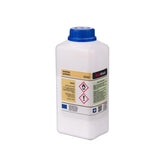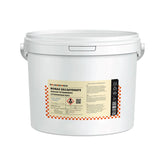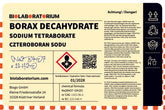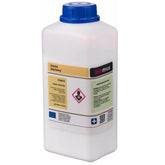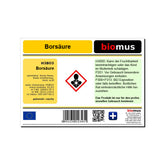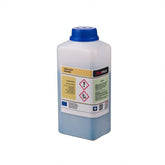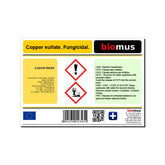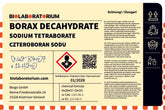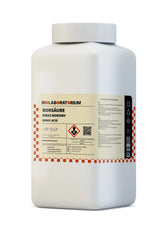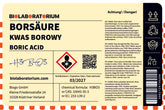Magnesium chloride – A versatile helper in industry
Magnesium chloride is a chemical substance that plays an important role in many industries. With its unique properties and applications, magnesium chloride has established itself as an indispensable component in numerous production processes. In this blog post, we will take a closer look at the properties, uses, and significance of magnesium chloride in the chemical industry.
Properties of magnesium chloride
Magnesium chloride (MgCl2) is an inorganic salt that occurs in crystalline form or as a solution. It is characterized by the following properties:
Chemical composition
Magnesium chloride consists of magnesium (Mg) and chlorine (Cl). The chemical formula is MgCl2. In pure form, it is a white, crystalline powder or granulate.
Solubility
Magnesium chloride is very soluble in water and forms a clear, colorless solution. The solubility increases with rising temperature.
Hygroscopicity
Magnesium chloride is hygroscopic, i.e., it attracts moisture from the ambient air and can bind water. Therefore, it must be stored protected from moisture.
Melting and boiling point
The melting point of magnesium chloride is 714°C, the boiling point is 1412°C.
Reactivity
Magnesium chloride reacts with water to form magnesium hydroxide (Mg(OH)2) and hydrochloric acid (HCl). It is also compatible with many other chemical substances.
These properties make magnesium chloride a versatile substance in the industry.
Industrial applications of magnesium chloride
Due to its unique properties, magnesium chloride is used in numerous industries. Here are some of the most important areas of application:
Chemical Industry
In the chemical industry, magnesium chloride serves as a starting material for the production of other magnesium compounds such as magnesium oxide, magnesium hydroxide, or magnesium sulfate. It is also used as a precipitant, catalyst, and desiccant.
Construction industry
In the construction industry, magnesium chloride is used as an additive for concrete, mortar, and plaster to increase their strength and durability. It is also used as a de-icing salt on roads in winter.
Metallurgy
In metallurgy, magnesium chloride serves as a reducing agent in the production of magnesium from magnesium oxide. It is also used to remove impurities from metals.
Food industry
In the food industry, magnesium chloride is used as an additive in tofu, noodles, and other products. It serves as a flavor enhancer and stabilizer there.
Pharmaceutical industry
In the pharmaceutical industry, magnesium chloride is used in medications, dietary supplements, and cosmetic products. For example, it is used to treat magnesium deficiency.
Agriculture
In agriculture, magnesium chloride is used as a fertilizer and feed additive to increase the magnesium content in soils and feed.
Environmental technology
In environmental engineering, magnesium chloride is used for wastewater treatment, drinking water purification, and flue gas desulfurization.
This variety of applications shows how important magnesium chloride is for many industries.
Significance of magnesium chloride in industry
Magnesium chloride has established itself as an indispensable raw material in the chemical industry. Some reasons for its high importance are:
High availability
Magnesium chloride occurs naturally in seawater, salt lagoons, and salt mines, making it easy and cost-effective to extract.
Versatile applications
As described, magnesium chloride can be used in numerous industries. This makes it a very versatile substance.
Important component in production processes
Many production processes in the chemical, construction, and metallurgy industries rely on the use of magnesium chloride. It is thus an essential raw material.
Environmental friendliness
Magnesium chloride is a relatively environmentally friendly substance, as it is biodegradable and has no toxic properties.
Cost-effective production
The easy extraction and processing of magnesium chloride result in comparatively low production costs.
Due to these advantages, magnesium chloride is indispensable in modern industrial production. It plays a key role in many important economic sectors.
Conclusion
Magnesium chloride is a versatile and indispensable raw material in the chemical industry. With its unique properties such as solubility, reactivity, and hygroscopicity, it is used in numerous application areas - from metallurgy to the construction industry and even the food and pharmaceutical industries.
The high availability, environmental friendliness, and cost-effective production make magnesium chloride an extremely valuable industrial chemical. No wonder, then, that it is indispensable in modern production and plays a key role in many important economic sectors.
